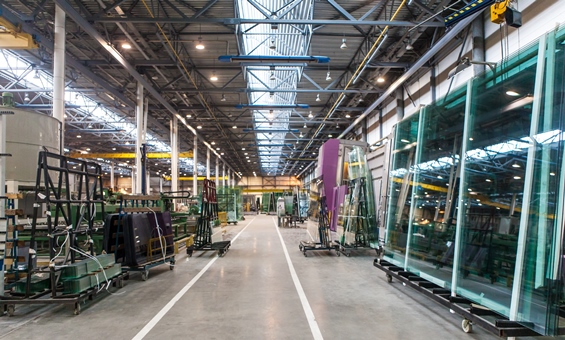INTRO:
While glass companies hold a crucial position in the economy, they also face their fair share of challenges and crises. From supply chain disruptions to environmental regulations and market volatility, these companies navigate complex landscapes that can impact their operations. We will delve into five common crises faced by glass companies, shedding light on the obstacles they need to overcome to maintain profitability and sustainability.
Despite these challenges, the need for more glass manufacturing companies persists, driven by factors such as population growth, technological advancements, and the demand for sustainable solutions. By addressing these challenges and seizing opportunities, glass companies can continue to thrive and meet the evolving needs of industries and consumers alike.
Section 1: Introduction to Glass Companies and Their Economic Importance
Glass companies play a vital role in various industries and have significant economic importance. From construction to automotive and consumer goods, glass is a versatile material with a wide range of applications. In this article, we will explore the economic significance of glass companies, highlighting ten key reasons why they are essential contributors to the global economy.
1. Construction Industry:
Glass is a fundamental component in modern architecture, providing aesthetic appeal and functionality. From skyscrapers to residential buildings, glass facades and windows enhance energy efficiency and natural lighting, reducing the need for artificial lighting and lowering energy costs.
2. Automotive Industry:
Glass companies supply windshields, windows, and other glass components to the automotive manufacturing sector. These companies ensure the production of safe and durable glass products that meet the stringent standards of the automotive industry.
3. Consumer Goods:
Glass companies produce a wide array of glassware, including bottles, jars, and containers for the food and beverage industry. Glass packaging is favored for its ability to preserve product quality, maintain hygiene, and provide an appealing visual presentation.
4. Electronics and Technology:
Glass companies play a crucial role in manufacturing electronic devices such as smartphones, tablets, and televisions. Glass screens and displays are essential components that enable touch functionality and provide protection against scratches and impacts.

5. Energy Sector:
Glass companies contribute to the renewable energy industry by manufacturing solar panels. These panels utilize specially designed glass components that help convert sunlight into electricity, promoting a sustainable energy future.
6. Medical and Pharmaceutical Industry:
Glass is widely used in the medical and pharmaceutical sectors for packaging medicines, lab equipment, and medical devices. Glass containers ensure the integrity and safety of pharmaceutical products by offering resistance to chemical interactions and maintaining sterility.
7. Art and Design:
Glass companies support the artistic and design communities by producing decorative glass items, sculptures, and stained glass windows. These unique and visually captivating pieces contribute to the cultural and creative economy.
8. Hospitality and Tourism:
Glass plays a significant role in the hospitality and tourism industries. Glass companies supply hotels, restaurants, and tourist attractions with glassware, mirrors, and decorative elements, enhancing the overall guest experience.
9. Environmental Sustainability:
Glass is a recyclable material, and glass companies actively contribute to environmental sustainability by promoting glass recycling initiatives. By manufacturing new products from recycled glass, these companies help reduce waste and conserve natural resources.
10. Job Creation and Economic Growth:
Glass companies generate employment opportunities and contribute to economic growth in the regions where they operate. From skilled labor in manufacturing facilities to sales and marketing positions, these companies provide jobs across various sectors of the economy.
Section 2: Crisis Faced by Glass Companies
While glass companies have significant economic importance, they also face certain challenges and crises that can impact their operations. Here are five common crises faced by glass companies:
1. Supply Chain Disruptions:
Glass companies heavily rely on a complex global supply chain for raw materials such as silica sand, soda ash, and limestone. Any disruptions in the supply chain, such as natural disasters or trade conflicts, can lead to material shortages and increased costs.
2. Energy Costs:
Glass manufacturing is an energy-intensive process, requiring substantial amounts of electricity and natural gas. Fluctuating energy prices can significantly impact the operational costs of glass companies, making it challenging to maintain profitability.
3. Environmental Regulations:
Glass companies face increasing pressure to reduce their environmental footprint and comply with stringent regulations related to emissions, waste management, and energy consumption. Adapting to these regulations often requires substantial investments in technology and infrastructure upgrades.
4. Competition from Alternative Materials:
Glass companies face competition from alternative materials such as plastic and composites in various industries. These materials may offer cost advantages or specific properties that make them attractive alternatives to glass, posing a challenge to traditional glass manufacturers.
5. Market Volatility:
The demand for glass products can be subject to market volatility, influenced by factors like economic conditions, consumer preferences, and industry trends. Fluctuations in demand can affect glass companies’ revenue streams and require agility in adapting to changing market dynamics.

Section 3: The Need for More Glass Manufacturing Companies
Despite the challenges and crises faced by glass companies, there is still a need for more glass manufacturing companies to meet the growing demand and explore untapped markets. Here are three reasons why:
1. Increasing Global Population:
The world’s population continues to grow, leading to increased demand for housing, infrastructure, and consumer goods. Glass companies are crucial for meeting the needs of these expanding markets, particularly in developing regions where urbanization and industrialization are on the rise.
2. Technological Advancements:
Technological advancements, such as smart glass and glass with enhanced functionalities, have opened up new opportunities for glass companies. Investing in research and development and expanding manufacturing capabilities can help companies innovate and address evolving customer demands.
3. Sustainable Solutions:
Glass is an environmentally friendly material that aligns with the growing demand for sustainable solutions. As consumers and industries prioritize eco-friendly alternatives, glass companies have an opportunity to position themselves as providers of environmentally conscious products, expanding their market share.
IN CONCLUSION:
Glass companies are essential contributors to the global economy, serving a wide range of industries and applications. While they face various challenges and crises, the need for more glass manufacturing companies remains. By addressing these challenges, embracing innovation, and tapping into emerging markets, glass companies can continue to thrive and play a vital role in meeting the demand for glass products in a sustainable manner.